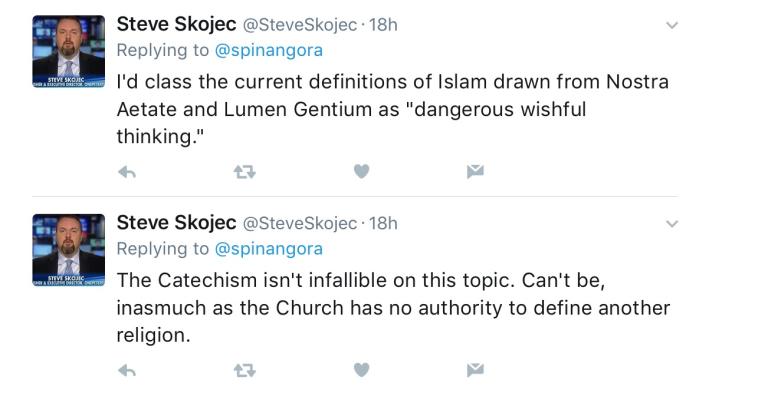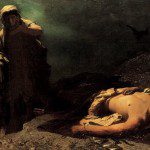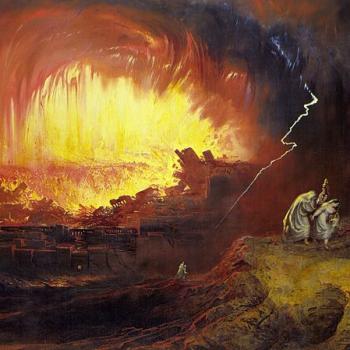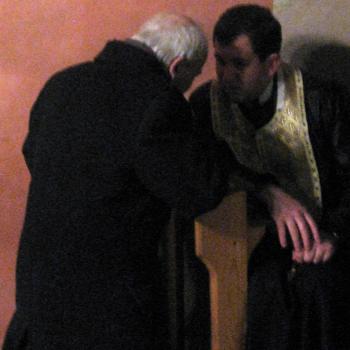
Image via Pixabay
Mary Pezzulo asks, “Who is Steve Skojec, anyway?” Here’s my answer: Apart from being a RadTrad blogger and pope basher at One Luther Five (he calls it One Peter Five, which is his right, I guess), he is a cafeteria Catholic.
I have, from a distance, been observing the Twitter war, of several days’ duration, between Mr. Skojec and my Facebook friend Mary Hammond; and I say, I was not going to get in the middle of it, because he was making enough of an ass of himself on his own. Except that part of it touched upon one of my topics this month, and I could not resist saying a few words—not on Twitter but here. At one point, the discussion between the two (I speak loosely in calling it that) turned toward Islam. And here, dear reader, for your review:
Now, one part of this is true: What is in the Catechism is of varying degrees of authority. The mere inclusion of something in the Catechism does not confer upon it a higher level of authority than it had to begin with. Cardinal Ratzinger said it himself: “The individual doctrines that the Catechism affirms has no other authority than that which they already possess.” So if it was not infallible before, it is not now.
That said, the USCCB explains the authority the Catechism has:
- It is “part of the Church’s official teaching”;
- It belongs to the ordinary Magisterium;
- Pope St. John Paul II promulgated it as an official document in his apostolic constitution Fidei Depositum;
- The pope described it as a statement of “Catholic doctrine” and a “sure norm for teaching the faith”
Now, Mr. Skojec of One Luther Five would like to use the claim that the Catechism’s words about Islam are “not infallible” as an excuse for rejecting them. This he may not do, and he may not do so for the reasons I gave back on March 4. Vatican II, the Profession of Faith, and Canon Law all claim that the faithful owe assent to whatever the Magisterium teaches, whether infallible or not. Again, Canon 752 says:
Although not an assent of faith, a religious submission of the intellect and will must be given to a doctrine which the Supreme Pontiff or the college of bishops declares concerning faith or morals when they exercise the authentic magisterium, even if they do not intend to proclaim it by definitive act; therefore, the Christian faithful are to take care to avoid those things which do not agree with it.
“Avoid those things which do not agree with it.” That means Mr. Skojec (Canon Law says) needs to refrain from describing the Church’s statements on Islam as “dangerous wishful thinking.”
But there is a second, and more important, point to be made here. If it is true that a statement in the Catechism retains its original level of authority, it is worth noting that what says about Islam comes from a Church council—Vatican II. As Mr. Skojec himself says, they come from Nostra Aetate and Lumen Gentium. (A side note: I’ve written about this topic before, here.)
Now, the highest level of authority in Church teaching is when the pope speaks ex cathedra and pronounces a solemn definition. The authority of a Church Council is second only to that. (The four levels of Church teaching are described here.)
So what Mr. Skojec is saying is that, unless it is a solemn definition, he can reject whatever he likes in Church teaching, even if it comes from a council. Of course, if that’s the standard, one could reject almost anything at all in Church teaching. One could reject what the Church teaches about abortion. One could reject Humanae Vitae. Or one could reject the Catechism’s statements about homosexuality being “intrinsically disordered.” No pope has made any solemn definitions regarding these. In fact, a great deal of what Mr. Skojec insists upon as the “traditional” faith falls short of a solemn definition.
Catholics don’t have the liberty to say, “I am only going to accept the highest level of authority, and reject whatever I choose in the rest.” There’s a name for that: Cafeteria Catholicism.













